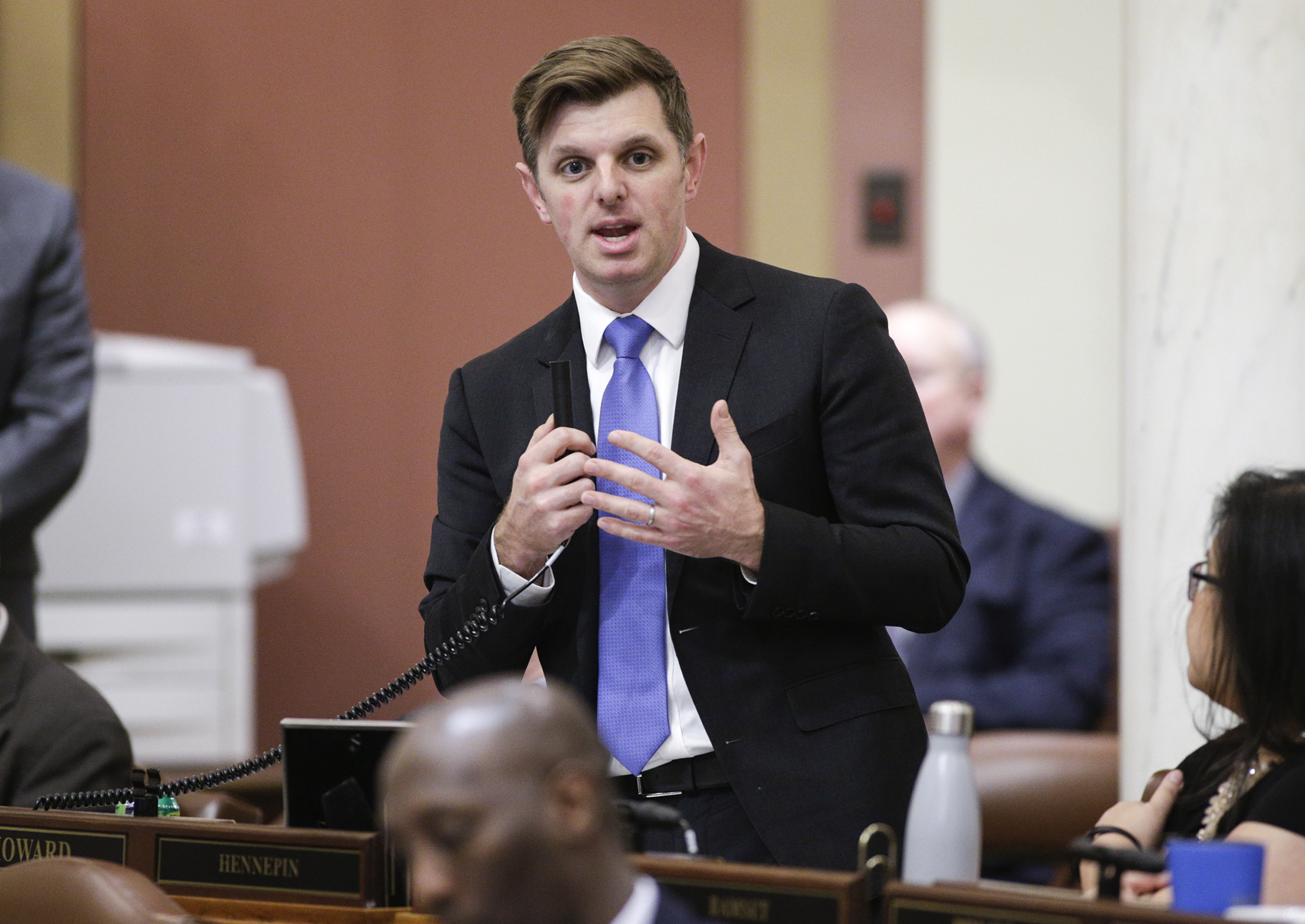Emergency insulin bill going to governor after House, Senate passage

— UPDATED at 4:31 p.m. with Senate vote
In 2017, Alec Smith was rationing his insulin until payday. He had $1,000, but was $300 short of what was needed to get the drug. He didn't make it, and died at age 26.
On Tuesday, his parents, Nicole Smith-Holt and James Holt, watched as Minnesota lawmakers passed the so-called "Alec Smith Insulin Affordability Act" in the hope that no Minnesotan will die again because they can't afford their insulin.
The House passed the conference committee report on HF3100 on an 111-22 vote and the Senate vote was 67-0. It now goes to the governor for his signature.
Under the agreement, diabetics with less than a 7-day supply of insulin would pay no more than $35 to get a 30-day supply from a pharmacy. Insulin manufacturers would reimburse pharmacies for the cost of emergency insulin or replace the insulin provided to patients. The emergency program would have no income eligibility requirements.
A long-term provision would require insulin manufacturers to offer a 90-day supply for no more than $50. To qualify, recipients’ family income would have to be less than 400% of federal poverty guidelines (about $51,000 for individuals or $104,800 for a family of four). Drug makers that fail to comply with the bill provisions would face up to $3.6 million in fines the first year and $7.2 million the second.
Rep. Michael Howard (DFL-Richfield), the House sponsor, said the legislation ensures Minnesotans can get an emergency supply of insulin at a price they can afford, and drug manufacturers will have a role in doing so. He said the bill would reach a broad spectrum of people, including uninsured, underinsured or Medicare recipients with high costs.
“What this bill says to Minnesotans is that if you need insulin to live, you can get it at a price you can afford,” Howard said. “It’s giving diabetics who manage this disease every minute of their lives the peace of mind that, as a state, we’re saying, ‘We care about your life and we’re gonna make sure you get the medication that you need,’ and that the drug manufacturers that have profited richly as the price has soared will share in the responsibility in solving this crisis.”
Last year, the House and Senate passed the Alec Smith Emergency Insulin Act with bipartisan support, but they were not able to resolve differences between the bills and a bipartisan group has been working toward a solution since the 2019 session adjourned. Four large health plans have also now stepped up and capped copays at $25, Howard said.
Rep. Pat Garofalo (R-Farmington) said the bill codifies what pharmaceutical companies are now providing, and no longer has “massive government growth” and “massive fees” for insulin suppliers. The original House bill passed earlier this year would have required insulin makers to pay about $38 million in annual fees to fund the program, which would have been administered by MNsure.
House Minority Leader Kurt Daudt (R-Crown) said drug makers acted late, but acted in ways that make the legislation unnecessary, which is why he voted against it.
However, Howard said a 21-year-old diabetic Minnesotan also died since the last session, showing the bill is still needed.
“For type 1 diabetics, insulin is like water, and they’re literally being priced out of their lives,” Howard said.
He said Alec’s story isn’t finished; his memory will linger in the Capitol for years to come.
“The fight to disrupt the status quo is very challenging,” Howard said. “There are entrenched interests always willing to fight back. And as government, we sometimes aren’t adept at thinking outside the box. And so this has been a challenge. And let’s make no bones about it, there have been powerful, moneyed special interests that would like to see the status quo continue and for this bill to be stopped in its tracks.”
Related Articles
Search Session Daily
Advanced Search OptionsPriority Dailies
Legislative leaders set 2026 committee deadlines
By Lisa Kaczke Legislative leaders on Tuesday officially set the timeline for getting bills through the committee process during the upcoming 2026 session.
Here are the three deadlines for...
Legislative leaders on Tuesday officially set the timeline for getting bills through the committee process during the upcoming 2026 session.
Here are the three deadlines for...
Latest budget forecast projects nearly $2.5 billion surplus, but red ink down the road
By Mike Cook Three weeks before Christmas, state budget officials provided some merriment to Minnesotans. However, Grinch-like transformations lurk.
Released Thursday, the November ...
Three weeks before Christmas, state budget officials provided some merriment to Minnesotans. However, Grinch-like transformations lurk.
Released Thursday, the November ...